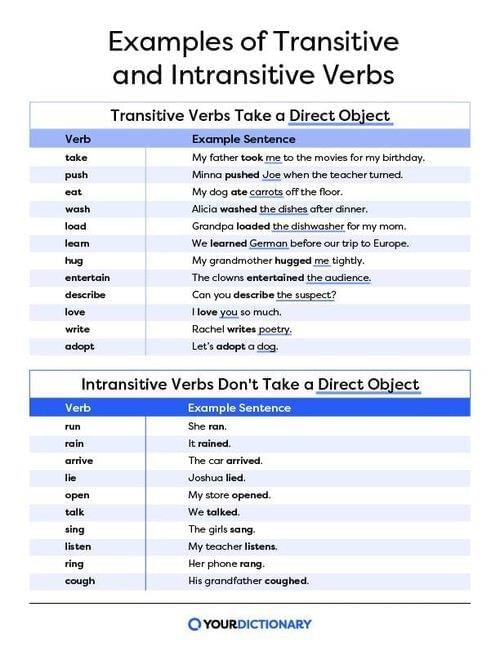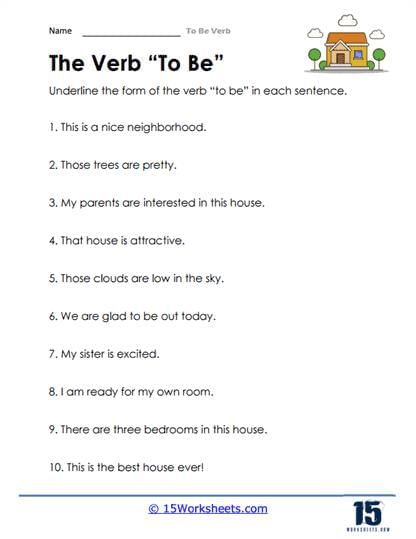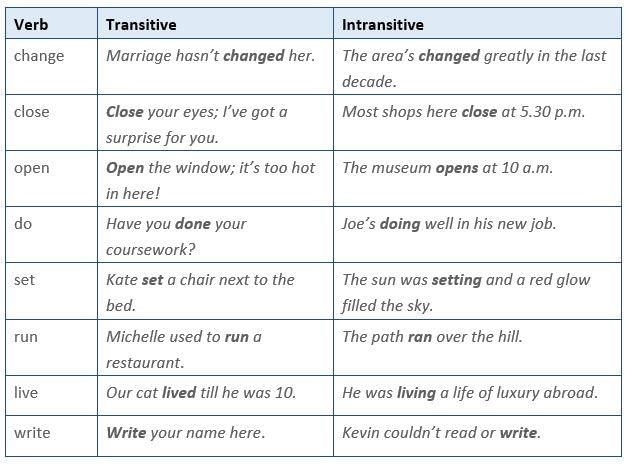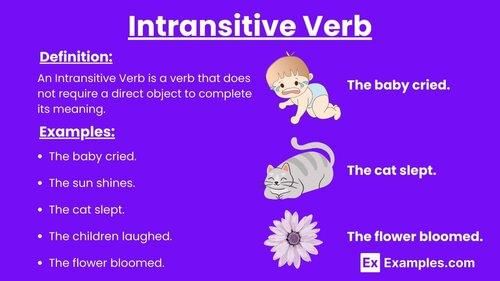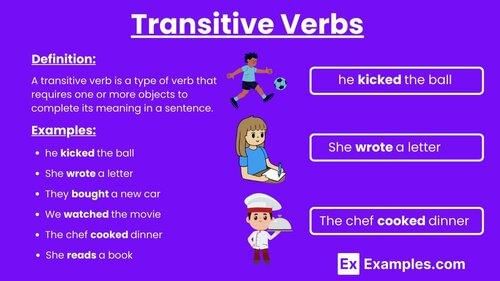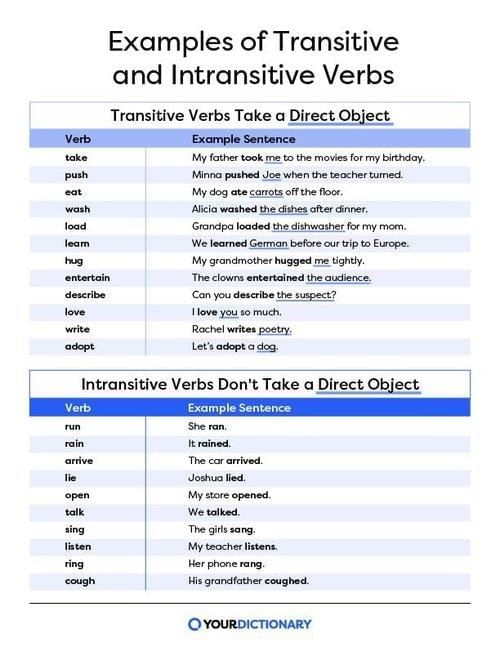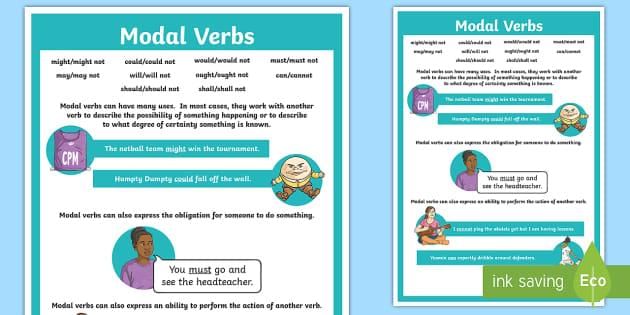|
Transitive verbs express an action directed towards a person, place, or thing and require an object to complete their meaning, while intransitive verbs do not need an object and can stand alone to convey a complete thought. 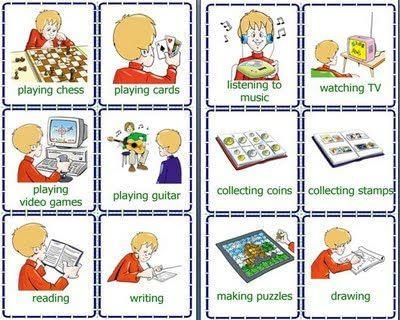 |
Card: 2 / 20 |
|
Fill in the blank: A verb that does not require an object to complete its meaning is called an ___. |
Card: 3 / 20 |
|
Riddle: I am a type of verb that shows action but do not need an object. What am I? |
Card: 9 / 20 |
 Unlock all Flashcards with EduRev Infinity Plan Starting from @ ₹99 only
|
|
The primary role of a verb in a sentence is to convey an action or a state of being, serving as the main word that completes the sentence. 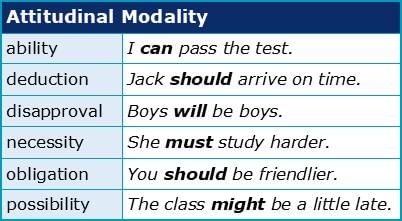 |
Card: 12 / 20 |
|
Fill in the blank: In the sentence 'She drinks water,' the word 'drinks' is a ___ verb. |
Card: 13 / 20 |
|
Helping verbs, also known as auxiliary verbs, support the main verb in a sentence. They provide additional meaning related to time, aspect, mood, or voice. For example, in 'We are in the Green House Club,' 'are' is the helping verb that assists the main verb 'to be'. 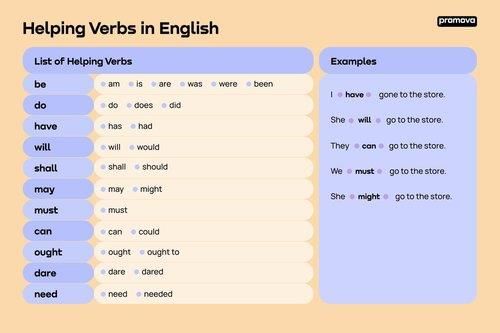 |
Card: 18 / 20 |
|
Fill in the blank: Modal verbs express ideas such as possibility, prediction, and ___ . |
Card: 19 / 20 |





